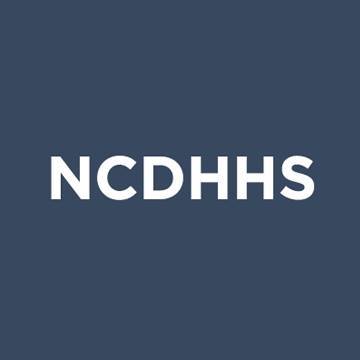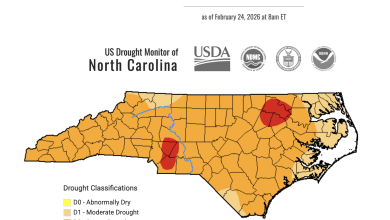
Last Updated on June 6, 2022 4:52 pm
Raleigh
Jun 6, 2022
Families participating in the Special Supplemental Nutrition Program for Women, Infants, and Children (WIC) can now use their benefits for a much wider variety of infant formula brands and types, helping them access the formula available in stores during the nationwide shortage when Gerber products are not available. The North Carolina Department of Health and Human Services has made 55 additional formula products temporarily available for WIC recipients today as part of its efforts to support families during the shortage. This is in addition to eight options added last week for different sizes and types of Gerber products.
“Giving these families more flexibility in the brand of baby formula they buy is the right thing to do during this shortage period,” said Governor Roy Cooper.
NCDHHS acted in partnership with the U.S. Department of Agriculture and Nestlé, which manufacturers Gerber infant formula, to provide these choices for WIC families during the shortage when Gerber formulas are not available. North Carolina contracts with Gerber to provide WIC recipients standard types of infant formulas.
“We are taking every potential action to ensure families participating in WIC have the flexibility they need at the shelf to obtain infant formula,” said NCDHHS Secretary Kody H. Kinsley. “We will continue working with our local and federal partners to do all that we can to ensure safe and nutritious options for babies and families.”
Beginning today, families can temporarily purchase with their WIC benefits these additional standard formula brands and sizes. Families do not need to take any actions to access these temporarily expanded WIC benefits. Families can see the new options in the Bnft® app and can scan the products in the app to verify coverage. When redeeming the new sizes, any can of infant formula 28 oz. or smaller will count as one can. Any can larger than 28 oz. will count as two cans.
These new product options for WIC recipients follow last week’s temporary addition of two new Gerber formula products as well as more sizes of Gerber formula. A full list of product options is available to help families plan their shopping.
NCDHHS continues to update resources and guidance during the formula shortage. The latest resources are available at www.ncdhhs.gov/formula. For families struggling to find the formula they need, NCDHHS has four important reminders:
- Remember that most families have multiple safe options for their infants even if their usual formula is not in stock. If you can’t find formula or can’t find your baby’s typical formula, work with your child’s health care provider to determine the best feeding plan.
- Do NOT water down your baby’s formula to stretch it out, it can be extremely dangerous to your baby to do so.
- Do NOT make homemade formula. A baby's nutritional needs are very specific, and homemade formula may contain too little or too much of certain vitamins and minerals, like iron.
- Do NOT buy formula from online auctions, unknown individuals, or unknown origins. Storage and shipping conditions may impact formula safety.
Other actions NCDHHS is taking to support families:
- Monitoring the formula supply across the state and keeping our partner organizations updated.
- Using available USDA waivers to help retailers continue to serve WIC-enrolled families during the shortage and help families return or exchange formulas included in the recall.
- Providing guidance to local WIC agencies and health care providers to make it easier for health care providers to give WIC-enrolled families several options of formula types and sizes on a single prescription to meet their children’s specialized formula needs.
- Sharing additional breastfeeding resources for those considering breastfeeding or using any breast milk as part of infant feeding plans.
The WIC program serves to safeguard the health of low-income pregnant, postpartum, and breastfeeding women, infants and children up to age 5 who are at nutritional risk by providing nutritious foods to supplement diets, information on healthy eating, including breastfeeding resources and support, and referrals to health care. More than half of infants nationwide participate in WIC.


















